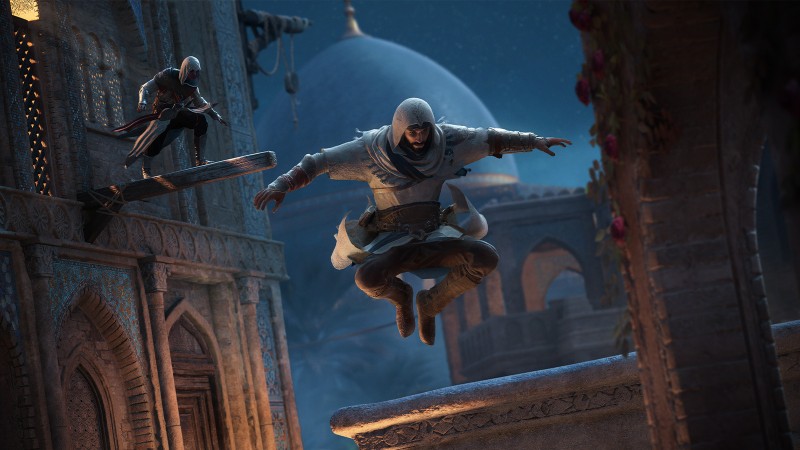
The Assassin’s Creed series debuted in 2007, and since then, the series has become a fixture in the gaming landscape. It received reliable annual installments (or more!) for several years; that cadence has relented a bit now, but the franchise's long history has certainly left us with no shortage of Assassin’s Creed games to enjoy. But how do they stack up against each other?
We originally published a version of this list back in 2015, but more Assassin's Creed games have released now, and some of our perspectives have shifted. So we are taking another look at the titles in the whole main series (no spin-offs or side-stories) and ranking them, highlighting the best moments and acknowledging the weaknesses in each.
14

Assassin’s Creed III: Liberation (2012)
Even as the lowest entry on our list, we can’t say Liberation is a “bad” game. However, it was originally created for Vita (though an HD port was eventually made), and the system’s limitations are apparent in the design and gameplay. Apart from its gimmicky features and restricted scope, Liberation still feels like an AC game at its core. The combat is a fun balance of offense and defense, and the story does a good job exploring the gray area between Assassins and Templars. Heroine Aveline’s ability to use different personas to navigate New Orleans doesn’t pay off, but Liberation delivers solid action even if it doesn’t take the series into exciting new territory.
13

Assassin’s Creed III (2012)
Ezio would be a hard act for any hero to follow, and AC III’s Connor struggles to live up to his predecessor’s legacy. Without much initiative of his own, he mainly does chores for important historical figures – and is coincidentally at the heart of every noteworthy event of the American Revolution. Narrative plausibility aside, this entry introduces some important and interesting elements, like naval combat and homestead-building. The colonial cities and vast wilderness aren’t as fun to explore as Renaissance Europe, but this ambitious installment tries to provide a wealth of content and and tell a complex, generation-spanning story. It may not succeed at every turn, but you can’t accuse AC III of not trying.
12

Assassin's Creed Mirage (2023)
Since 2017's Assassin's Creed Origins, Ubisoft has continued to expand on the open-world possibilities of its marquee franchise. While this push for more has been received well by fans, there's been a distinct lack of focus on the tenets of Assassin's Creed that made this series what it is today: parkour, stealth, and assassination. Wanting to celebrate 15 years of Assassin's Creed, Ubisoft Bordeaux created Assassin's Creed Mirage, a lean back-to-basics entry that's the first in years you can beat in less than 80 hours.
Through its roughly 15-hour story, players control Basim Ibn Is'haq, whom we first saw as an important character in Assassin's Creed Valhalla, in a coming-of-age story that sheds light on a secret period of the Hidden Ones order. While its story left us wanting a lot more out of it, especially with its anti-climactic and sudden ending, exploring the singular city of Baghdad using parkour and stealth was a treat. Gone were extended combat sequences, RPG mechanics, tiered loot, and sprawling adventures across entire countries; in its place, a slim reminder of where Assassin's Creed began as a franchise and what makes it special to begin with, even if Mirage's overall depth was shallower than we had hoped.
11

Assassin's Creed Revelations (2011)
Up to this point in AC’s lineage, each entry in the series felt like a significant step forward. However, Revelations isn’t much different from Ezio’s other adventures; it has fun gameplay, cool missions, and a cinematic presentation. On one hand, it’s hard to complain about more of a good thing. On the other, that’s how franchise fatigue settles in. A tower-defense minigame is the only noteworthy addition – but it’s terrible and interferes with your enjoyment of the rest of the game, which makes the whole experience feel like a step down. Plus, even though Revelations brings closure to the Ezio/Altair storyline, Desmond’s modern-day arc stalls completely, so it doesn’t convey a larger sense of progress.
